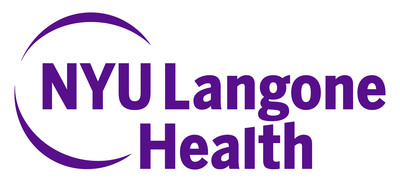A computer betting game can help predict the likelihood that someone recovering from opioid addiction will reuse the pain-relieving drugs, a new study shows.
BROOKLYN, N.Y., Dec. 8, 2019 /PRNewswire/ -- A computer betting game can help predict the likelihood that someone recovering from opioid addiction will reuse the pain-relieving drugs, a new study shows.

The game, now being developed as an app, tests each patient's comfort with risk-taking, producing mathematical scores called betas long used by economists to measure consumers' willingness to try new products. The team then used a statistical test to see whether changes in risk-taking comfort tracked with opioid reuse, and found that people who placed higher-risk bets had higher beta scores.
When combined with other test scores that quiz a patient about recent drug use and desire to use drugs, or cravings, the study found that patients who showed sharp increases in their total beta scores were as much as 85 percent likely to reuse within the next week. By contrast, those whose beta scores did not undergo a spike were much less likely to reuse during treatment, usually a combination of talk therapy and drugs to wean patients off their opioid addiction.
Researchers say the findings, published in the Journal of the American Medical Association (JAMA) Psychiatry online Dec. 8, could lead to the design of clinical tools for tracking and reducing the number of patients who reuse opiates during treatment. More than 2 million Americans are estimated to have some form of opioid-use disorder.
According to the NYU Grossman School of Medicine researchers who led the new study, which is also being presented at the annual meeting of the American College of Neuropsychopharmacology in Orlando, Fla., a majority of patients reuse at some point during treatment, and more than half relapse within a year of undergoing therapy.
And while drug treatments with methadone, buprenorphine, and naloxone are highly effective in weaning patients off opioids, researchers say their impact has been constrained by a lack of good tools for measuring how well patients are responding to any treatment and for determining when treatment should be tailored (e.g., by increasing or decreasing drug doses) to prevent reuse.
Researchers say current techniques are insufficient and rely too much on cravings and on urine testing, which only provides such information after a patient has already reused.
"Our study shows that computer-based diagnostic tests may offer a useful new option," says study senior investigator and neuroeconomist Paul Glimcher, PhD. "Ideally, clinicians would have several tools available for real-time monitoring of how well our patients are managing to free themselves from their addiction," says Glimcher, a professor in the Neuroscience Institute and in the Department of Psychiatry at NYU Langone Health.
Glimcher notes that while many patients experience reuse "slip-ups" during therapy, they are not considered to have relapsed unless they fail to return and complete a standard, six-month treatment plan.
For the study, researchers recruited 70 men and women undergoing opioid addiction therapy at NYC Health + Hospitals/Bellevue. Each played the betting game regularly for seven months when they came in for weekly or monthly clinic visits. Their results were compared to the results for 50 other Bellevue patients of similar race, gender, and age who also played the game weekly but were never addicted to opiate drugs.
As part of the game, patients had the option of accepting a known risk, such as an immediate chip reward worth $5, or gambling on a "riskier" bag of chips with the possibility of either greater reward, as high as $66, or nothing. Some bags contained only two chips, leaving players with a 50 percent of winning, while others contained more chips, with players not always knowing their chances of winning. Risk scores were then plotted on a graph for tracking each patient's willingness to take known or unknown risk. The game takes only a few minutes to complete.
Glimcher says patients typically demonstrate a pattern of "ups and downs" throughout treatment, with low beta scores when they feel in control of or even overconfident in their ability to resist any urge to reuse, but these scores then rise immediately before patients reuse, when they start "feeling lucky" and are willing to place higher-risk bets.
Once completed, Glimcher says his smartphone app based on the betting game could be used to provide daily monitoring of patients' progress. Test results could be "networked" to a patient's medical team and mental health support group, including close friends and family, to alert them when a patient is vulnerable and at greater risk of reuse.
Funding support for the study was provided by National Institute on Drug Abuse grants R01 DA043676 and F32 DA039648. Additional funding support came from Brain & Behavior Research Foundation grant 25387, the U.S. Fullbright Commission and the government of Colombia. Glimcher is developing his app with DataCubed Health, a company in which he has a financial interest. This relationship is being managed in accordance with the policies of NYU Langone.
Besides Glimcher, other members of the NYU Langone team are study co-senior investigator John Rotrosen, MD; and co-lead investigators Anna Konova, PhD, now at Rutgers University in Piscataway, NJ; and Silvia Lopez-Guzman, MD, PhD, now at Rosario University in Bogota, Colombia. Other study co-investigators are Stephen Ross, MD; and Kenway Louie, MD, PhD.
Media Inquiries:
David March
212-404-3528
david.march@nyulangone.org
![]() View original content to download multimedia:http://www.prnewswire.com/news-releases/computer-game-may-help-to-predict-reuse-of-opioids-300970530.html
View original content to download multimedia:http://www.prnewswire.com/news-releases/computer-game-may-help-to-predict-reuse-of-opioids-300970530.html
SOURCE NYU Langone Health




